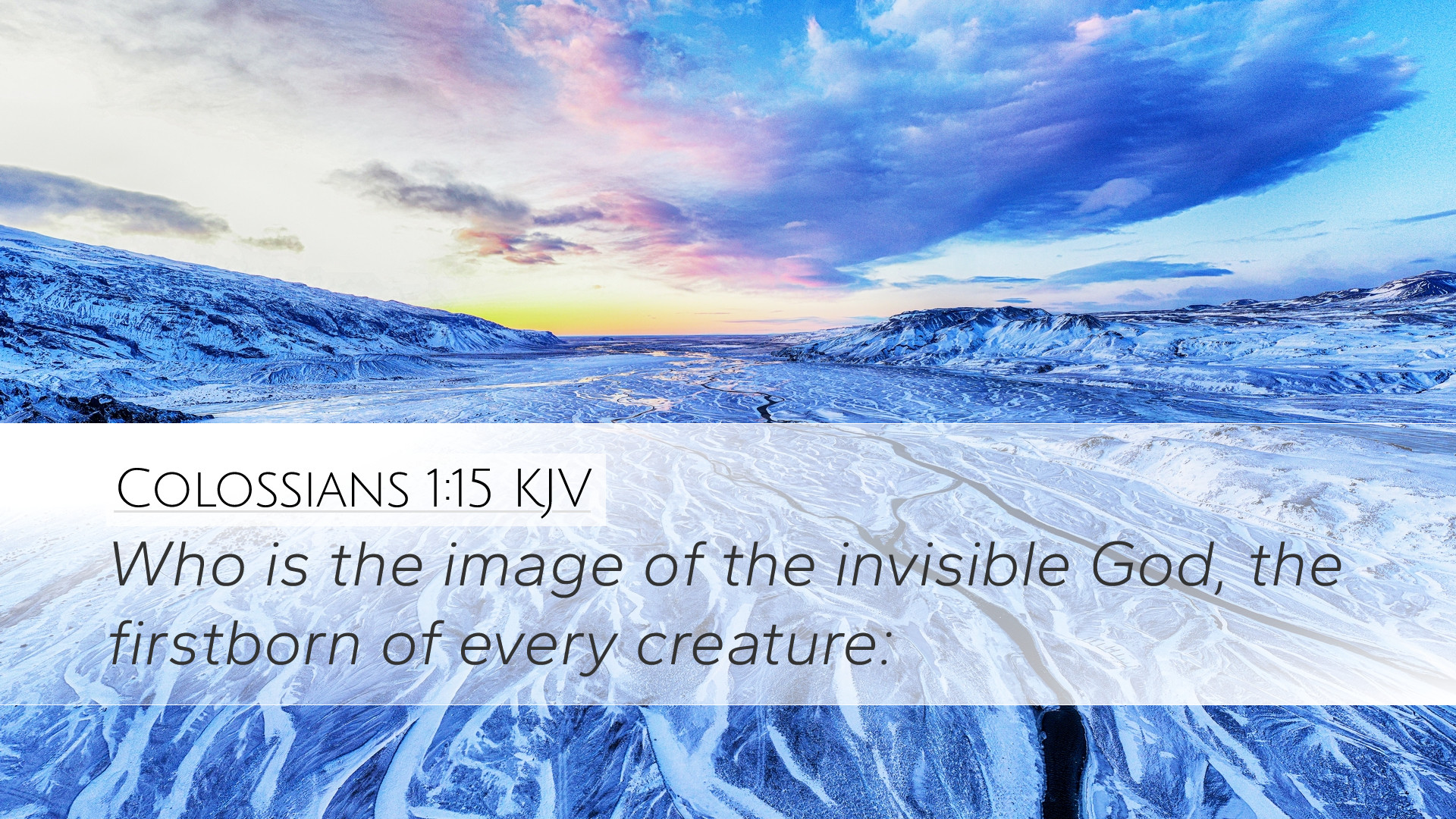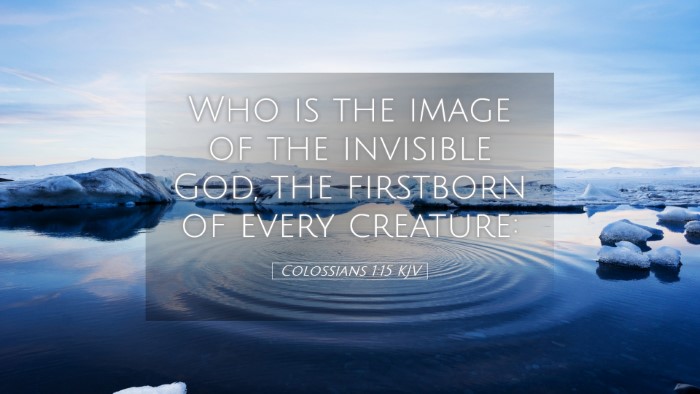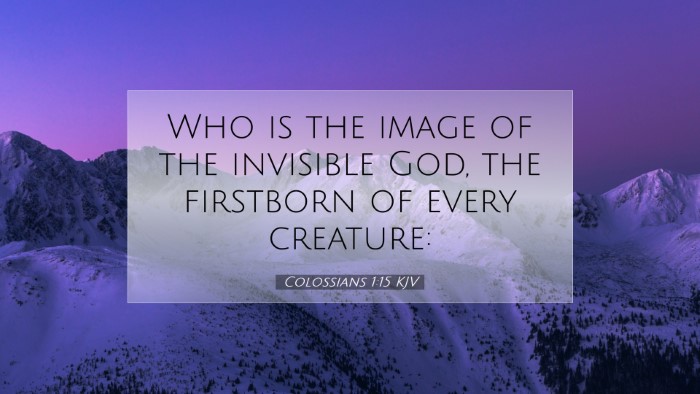Commentary on Colossians 1:15
Verse Context: Colossians 1:15 states: "Who is the image of the invisible God, the firstborn of every creature." This verse represents a profound declaration concerning the nature and role of Christ in relation to God and creation.
Exegesis and Interpretation
This passage introduces us to two critical theological concepts about Christ, primarily His being the image of the invisible God and His status as the firstborn of every creature.
The Image of the Invisible God
Matthew Henry emphasizes that the term "image" indicates that Christ perfectly reflects the nature and essence of God. He is the tangible representation of the divine being, thus forming the link between humanity and the Godhead. In essence, the fullness of God dwells in Christ (Colossians 2:9).
Albert Barnes elaborates that this assertion underscores the impossibility of knowing God accurately apart from Jesus Christ. He elucidates that God, being invisible in essence, chose to reveal Himself through His Son. Just as an image brings form to a formless concept, Christ brings understanding and clarity to our perception of the divine.
Adam Clarke further describes this “image” as not merely a reflection, but one that possesses the very traits of God’s character and attributes. Clarke points out that in observing Christ’s life and actions, one can discern qualities of divine love, justice, and grace that mirror those of God.
The Firstborn of Every Creature
The second title ascribed to Christ, the firstborn of every creature, carries significant theological weight. Paul does not indicate that Christ was created, but affirms His preeminence over all creation. This title is indicative of Christ's status and authority.
Matthew Henry speaks to the idea that “firstborn” can refer to both priority in time and preeminence in rank. Christ is not just the first to be created but holds a unique position in relation to all things created. This title asserts His leadership over creation, emphasizing that everything exists through Him and for Him (Colossians 1:16).
Albert Barnes comments that being the 'firstborn' entails Christ's sovereign right and preeminence over creation. This title does not diminish His divine nature, but instead highlights His unique and authoritative role in the created order. He precedes all things and thus has rightful authority over all to whom He came to redeem.
Adam Clarke emphasizes that this term was culturally significant in the Jewish context as 'firstborn' often denoted privilege and supremacy. By identifying Christ as the firstborn, Paul is affirming His authority and dominion, aligning with the Jewish tradition that recognized the firstborn as receiving a double portion of inheritance and rights.
Theological Implications
The implications of this verse extend to several core doctrines of the Christian faith:
- Christology: This verse provides essential insight into the understanding of Christ's nature and His relationship to God. The dual affirmation establishes His divinity and humanity.
- Revelation: The idea of Christ as the image of God reinforces the notion that Jesus reveals the true character of God to humanity. It emphasizes the belief that understanding Christ is essential to knowing God.
- Creation: The preeminence of Christ suggests that all creation is subject to Him, which affirms the doctrine of His role in creation and the ongoing governance of the universe.
Application for Today
For pastors and theologians, this verse serves as a foundation for preaching on the supremacy of Christ. It equips ministers to articulate the significance of Christ as the mediator between God and humanity in their sermons.
For students and Bible scholars, this verse invites further exploration into Christological studies. It provokes theological inquiry into how the image of God manifests in believers and the implications for Christian living.
Conclusion
The profundity of Colossians 1:15 cannot be overstated. As we delve deeper into the implications of Christ being the image of the invisible God and the firstborn of all creation, we uncover a wealth of knowledge that shapes our understanding of God, Christ, creation, and our relationship with Him. This verse invites continual reflection on the majesty of Christ and His pivotal role in God's redemptive history.


